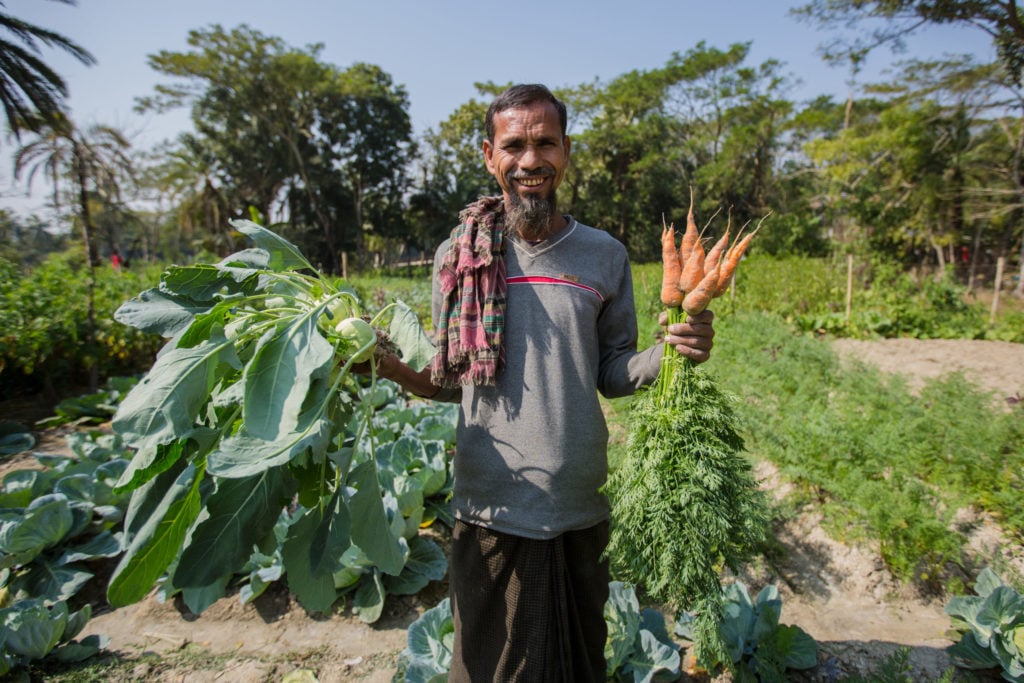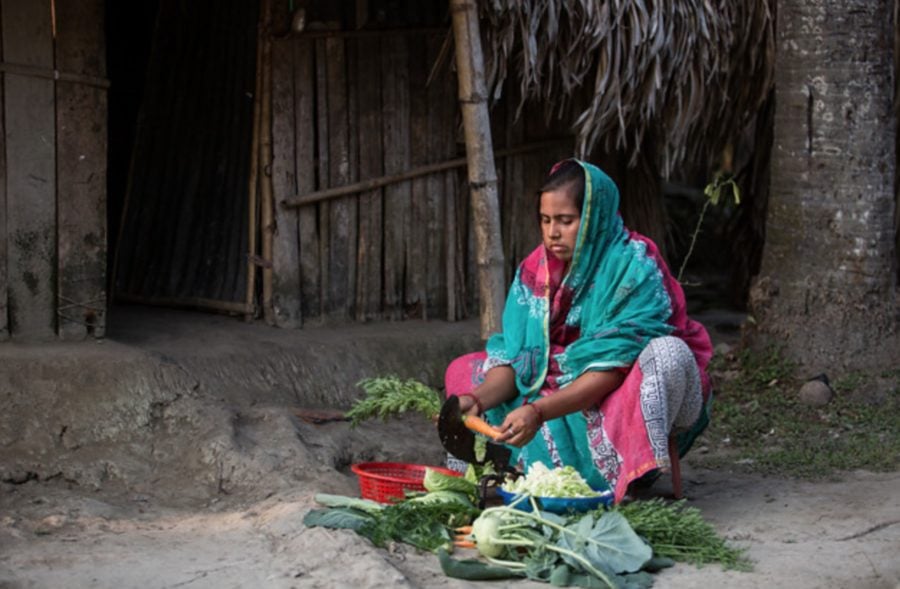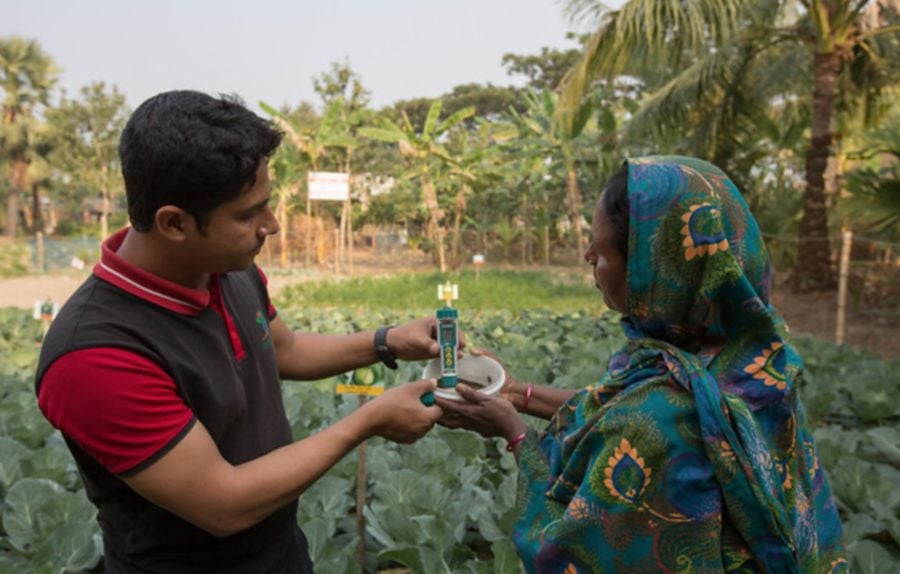In the coastal areas of Bangladesh Cordaid trains 10,000 farmers in saline agriculture. By learning how to grow salt-tolerant crops on land that has been damaged by saltwater, farmers can make their fallow, saline soil fertile again, grow sufficient food for the community, and generate an income.

Worldwide there is a growing shortage of land for agriculture, partly due to salinisation, the increase of salinity in the soil. This can have various causes, such as flooding from the sea or the rise of saltwater through the bottom, resulting in fallow land.
Salinisation is a major problem in Bangladesh, especially in coastal areas, where climate change is causing more – and more extreme – cyclones, causing farmers’ fields to flood. The people who live in these areas often depend on agriculture and their lives are now jeopardised.
The solution: salt-tolerant crops
Until now, farmers mainly tried to combat the salt concentrations in the soil. But the methods are expensive and their effects are short-lived.

Cordaid turns a growing problem into a sustainable solution, by introducing varieties of crops that grow well on saline soil. We do not try to lower the concentration of salt in the ground but use it to our advantage. This way, the degraded soil becomes productive again and that offers new opportunities for farmers.
Facts and figures
- 76 million hectares of farmland worldwide threatened by salination;
- 53% of farmland in Bangladesh affected;
- 10.000 farmers receive training;
- Resulting in 2 to 3 extra harvests per year.
Watch this video about The Salt Solution in Bangladesh:
Innovation from the Netherlands
In 2015, ICCO (now part of Cordaid) invited Salt Farm Texel to investigate the possibilities of introducing salt-tolerant crops in Bangladesh. These are natural variants of regular, meaning not genetically modified crops, that grow considerably better on saline soil. Thanks to the large-scale screening of many crops and varieties, the Dutch company identified the most salt-tolerant varieties at its test location on the island of Texel. Several crops were selected: carrots, potatoes, kohlrabi, cabbage and beets.

Working together with progressive farmers
In this project, we work with farmers who are open to innovative ideas and have a respectable position in the community. As pioneers, they can put saline agriculture into practice. On their land, they will show the new techniques to the other farmers and convince them to also start working with saline agriculture.
Commercialisation of seeds
The next step is to make salt-tolerant seeds widely available so that farmers can buy these seeds on the market. For this, Cordaid works together with the local seed company Lal Teer. Previously, seeds were imported from the Netherlands. However, this is very expensive and time-consuming. To ensure that the salt-tolerant crops remain available after the project ends, Lal Teer is now investigating which seeds they can develop for the market.
Donors
The Salt Solution project is made possible by the Dutch Postcode Lottery. A follow-up to this project, called COASTS, is made possible by the Netherlands Enterprise Agency. COASTS is a public-private partnership consisting of Lal Teer Seeds Ltd, Soil Resource Development Institute of the Bangladesh Ministry of Agriculture, Bangladesh Agricultural University and Cordaid.
